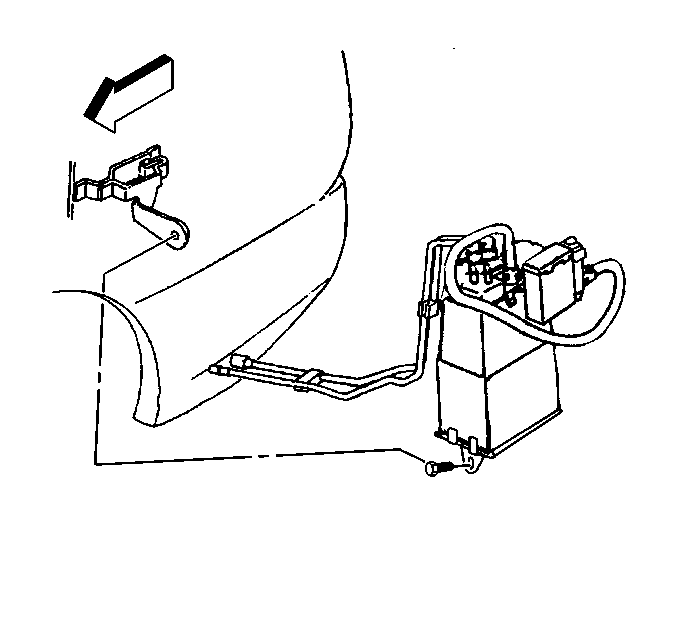Removal Procedure
- Disconnect the negative battery cable. Refer to Battery Negative Cable Disconnection and Connection in engine electrical.
- Raise the vehicle. Refer to Lifting and Jacking the Vehicle in general information.
- Remove the driver side rear wheel and housing liner.
- Remove the hoses from canister. Mark the hoses to ensure correct installation on new canister.
- Remove the canister and latch assembly from the canister bracket.
- Release the latch securing the canister.
- Remove the canister.

Important: Inspect the canister hoses for damage or deterioration. Refer to Emission Hose Routing Diagram for proper routing of canister hoses. When replacing the lines, use the correct replacement part.
Installation Procedure
- Install the canister and engage the latch assembly.
- Reinstall the canister and latch assembly to the canister bracket.
- Connect the hoses to canister. Make sure the connections are correct.
- Reinstall the driver side housing liner and wheel assembly.
- Lower the vehicle
- Reconnect the negative battery cable. Refer to Battery Negative Cable Disconnection and Connection in engine electrical.

Notice: Use the correct fastener in the correct location. Replacement fasteners must be the correct part number for that application. Fasteners requiring replacement or fasteners requiring the use of thread locking compound or sealant are identified in the service procedure. Do not use paints, lubricants, or corrosion inhibitors on fasteners or fastener joint surfaces unless specified. These coatings affect fastener torque and joint clamping force and may damage the fastener. Use the correct tightening sequence and specifications when installing fasteners in order to avoid damage to parts and systems.
Tighten
Torque the wheel nuts to 140 N·m (104 lb ft).
